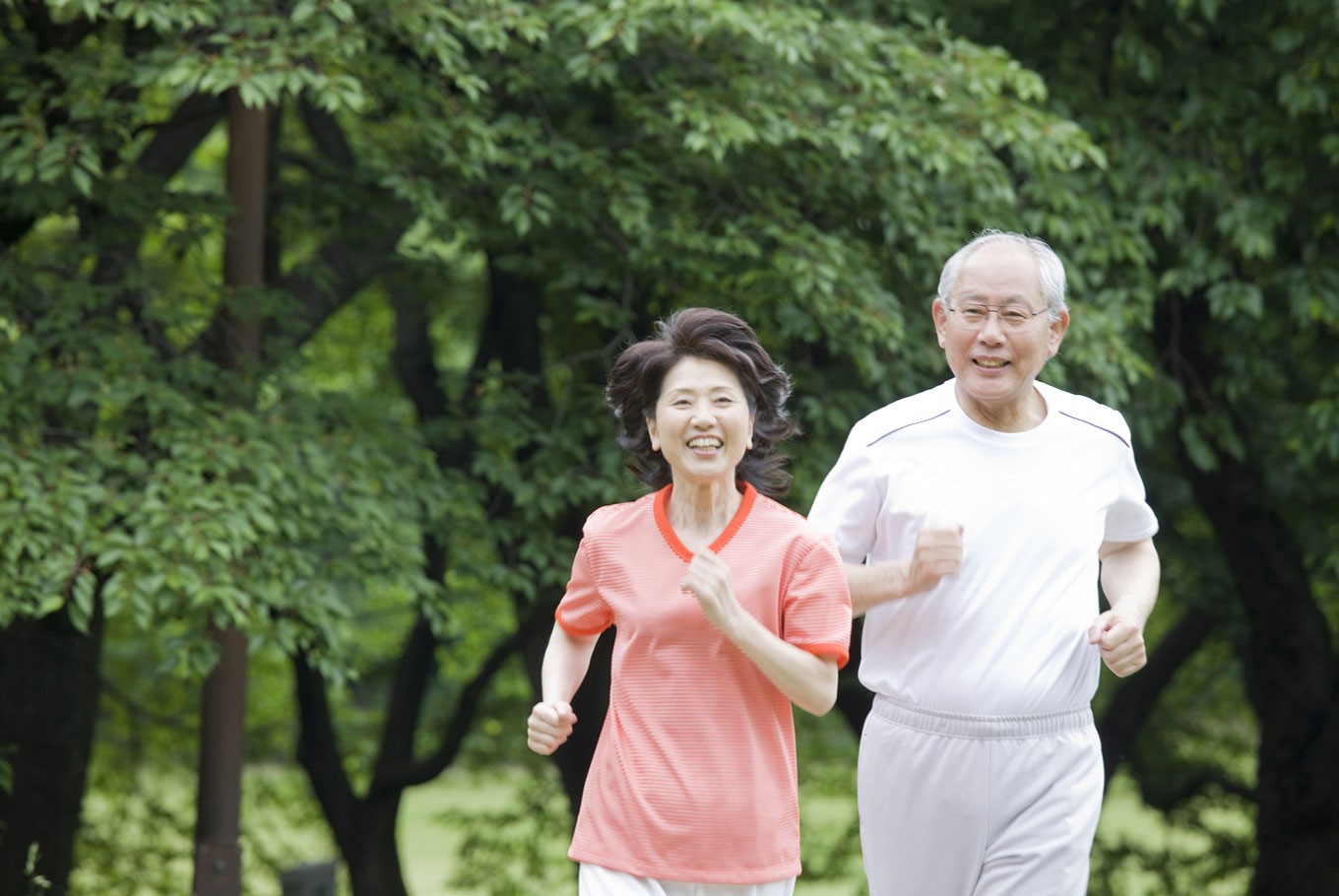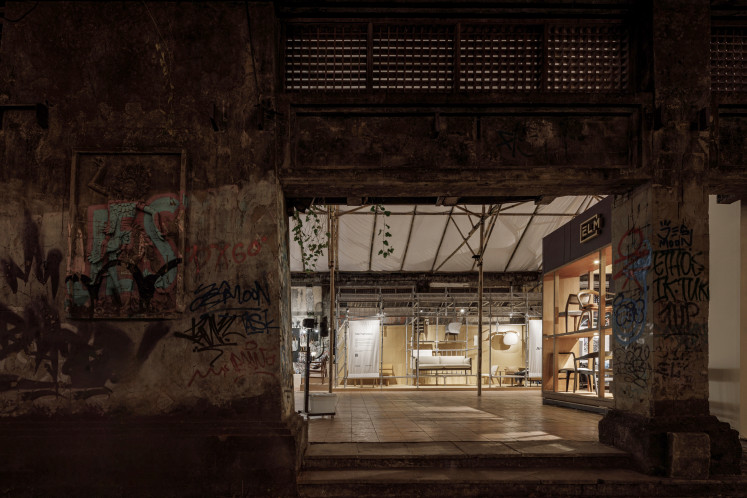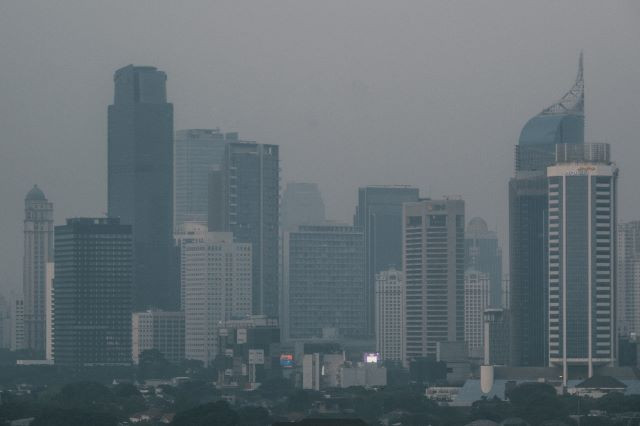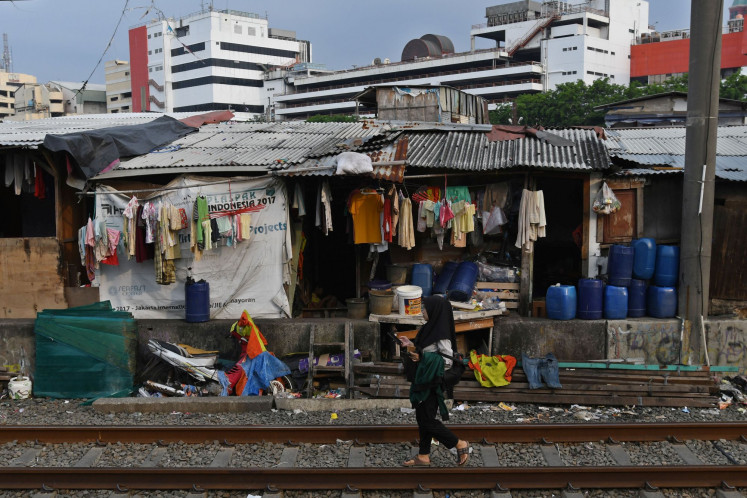Popular Reads
Top Results
Can't find what you're looking for?
View all search resultsPopular Reads
Top Results
Can't find what you're looking for?
View all search resultsDo Asians really age more slowly?
Statistics show that Asian women enjoy better health and longer lives. For instance, more than 50,000 people in Japan are above the age of 100, and China has a low rate of breast cancer.
Change text size
Gift Premium Articles
to Anyone
 Two elderly Asian people run in a park to maintain good health. (Shutterstock/File)
Two elderly Asian people run in a park to maintain good health. (Shutterstock/File)
A
sians are often said to look at lot younger than they really are, and statistics show that Asian women enjoy better health and longer lives. For instance, more than 50,000 people in Japan are above the age of 100, and China has a low rate of breast cancer.
It’s not just the diet that’s affecting it. There’s a long kept secret that makes Asian women look younger than women of other races: genetics and physical characteristics.
The secret behind the Asian skin tone
The human skin tone varies from the palest to the darkest. The color stems from the amount and type of skin pigmentation called melanin. There are two types of melanin: eumelanin and pheomelanin. Like many other physical attributes, the amount and type of pigment on our skin is determined by our genes. All our genes work together to create the final product— our skin.
As reported by thetech.org, scientists have identified a couple of genes that play a role in the skin tone, one of which is melanocortin receptor 1 (MC1R). When MC1R works well, the melanocyte cells (found in the epidermical layer of the skin) transforms pheomelanin into eumelanin, but if MC1R works sluggishly, pheomelanin will be accumulated. In the majority of people with light or pale skin, such as Caucasians, MC1R performs slowly, which is why they have more pheomelanin, resulting in lighter skin.
Other genes involved in determining the human skin tone are the kit ligand gene (kitlg) and SLC24A5. Scientists have found that East Asian people have brighter skin than the general Asian population due to the version of kitlg. Northern European people of pale skin are also known to have SLC24A5 genes that don’t not work the way they are supposed to. A small portion of Northern Europeans get their skin tone from a sluggish MC1R gene. To sum up, the more eumelanin your skin has, the darker your skin will be. People who have more pheomelanin will have paler skin, usually accompanied by freckles.
However, although genetics play a big role in determining one’s skin tone, there are still external factors that can cause variations in skin color in various races, one of which is the exposure to sunlight. Sunlight can be damaging due to the UV radiation it contains. UV radiation can destroy folic acid or cause DNA mutation in some skin cells. Sometimes this mutation can even cause skin cancer. This is where dark skin has its advantages.
(Read also: Who shouldn’t do laser hair removal)
Why darker skin is healthier
Dermatologists distinguish six skin types based on the color, from the palest type I to the darkest type VI. "People of type IV or higher have more melanin in their skin protecting them from the sunlight," said dermatologist Monica Halem from Columbia University, as quoted by webmd.com. An ethnic African person of skin type VI, for instance, does not feel the effect of aging as much as an ethnic Caucasian with blond hair and light skin of type I.
Human skin is often exposed to damaging, DNA-affecting environments and therefore needs a lot of endogenous mechanisms to protect against, reduce and/or fix the damage. The mechanisms we are talking about are processes to increase epidermal thickness, DNA fixing and apoptosis, antioxidant enzyme and, most importantly, skin pigmentation.
UV radiation is a primary environmental factor that affects the function and health of various cells and is considered as a prime risk factor for skin tumors, such as basal cell carcinoma (BCC), squamous cell carcinoma (SCC) or malignant melanoma. Generally, skin pigmentation is believed to be a photoprotective agent due to melanin having antioxidant properties and free radicals prophylactic. Other than that, a lot of evidence suggests that people with darker skin have a far lower chance of skin cancer than lighter-skinned people.
Collagen also takes part in fighting against premature aging. While melanin absorbs UV radiation and protects the skin from the inside, collagen is a skin tissue forming molecules that provide protection against diseases and injuries. The thicker the skin is and the more melanin it contains, the greater its anti-aging effect, including its protection against wrinkles and fine lines. As a result, people who have darker skin tend to look younger than their paler counterparts.
Nonetheless, dark-skinned people are not immune to UV damage. Therefore, it is important to use moisturizer rich in vitamin E and C and also sunscreen with a minimum sun protection factor (SPF) of 30 every time you go outdoors, even if you have dark skin.
Asian facial features are also a factor
Some experts believe that the Asian facial shape also plays a role in the well-preserved look, based on the specific location of fat. Asians have more fat around the eyes, which prevents wrinkles in that area. Facial fat around the mouth also supports the youthful look of many Asian women. The fatty pads around the mouth hamper the formation of wrinkles, resulting in a smoother look. Moreover, the anatomy and facial form of Asians, such as the small eyes, thin lips, higher cheek bones and short forehead is believed by some experts to make Asian women look a couple of years younger than they really are. (kes)










